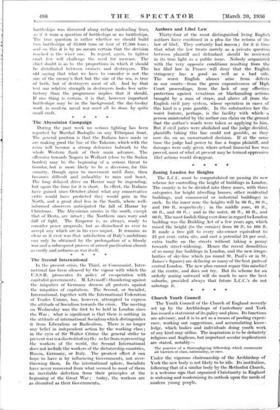Authors and Libel Law Thirty-four of the most distinguished living
English authors have combined in a plea for the reform of the law of libel. They certainly- had 'reason for it is time that what- the law treats merely. as a.-private question -between plaintiff and defendant should be reviewed in its true light as a public issue. Nobody acquainted with the very opposite conditions resulting from the lax libel" law in France will deny that- the- English stringency has a good as well as a -bid- side. The worst English abuses arise froth defects in -our courts—from the gross expensiveness of High "Court proceedings, from the lack of any effective protection against vexatious or blackmailing actions brought by a man of straw, and above all from, the English civil jury system, whose operation in cases of this kind is a pure gamble. In the substantive law the worst feature, perhaps, is the facility with which- a person unintended by the author can claim on the ground that the author's words were taken as applying to him. But if civil- juries were abolished and the judge .decided, plaintiffs taking this line could not -gamble, as they • now do, on an unwarranted decision. If at the same time the judge had power to fine a -bogus plaintiffi'and damages were only given where actual financial loss was proved, most of what at present may be termed oppressive libel actions would disappear.


































































 Previous page
Previous page